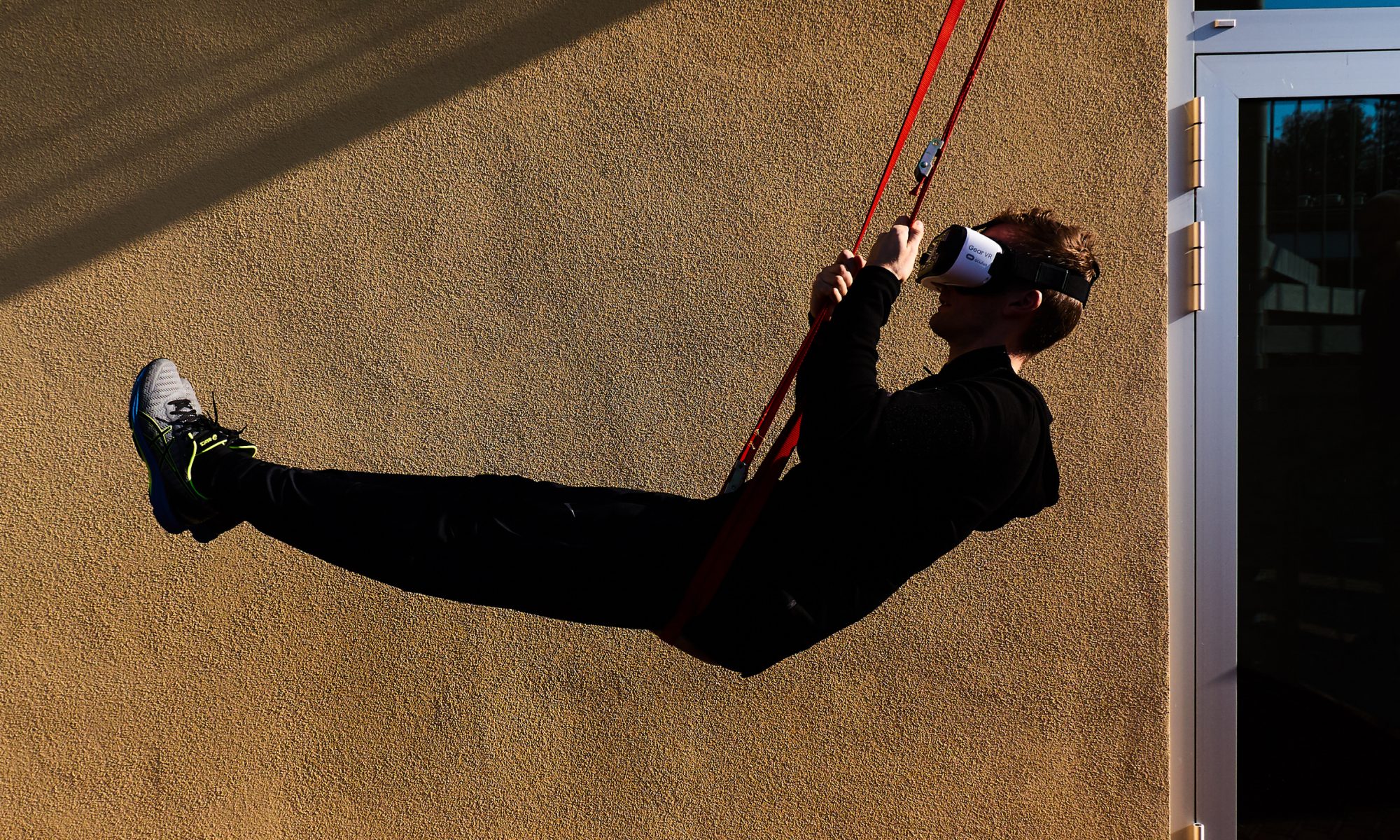INBODIED INTERACTION – the design approach that focuses on how and why aligning our designs with HOW we work inside our skin can help #makeNormalBetter.
From Nov 16 to Dec 15 –in different international time zones we are presenting a FREE Inbodied Interaction, interactive virtual seminar series with field-leading experts on selected topics in INbodied Interaction. Our goal in this series is to inspire – to see more of our interactions, from inside ourselves to what we construe as outside ourselves – as design provocations to help us #makeNormalBetter for all, @scale. Featuring (so far):
- Josh Andres, Mike Jones and m.c. schraefel: intro orientation + Q&A to Inbodied Interaction Design, Continua and Discomfort as Material, Nov 16 & 18’th to se the stage for the series THEN we have:

- Olga Perski and Guillaume Chevance – Micro Randomization and Time Series – towards Tuning
- Ryan Andrews, RD – food quality from field to table to all the politics in between – the app and you
- Dana Lewis – DIY pancreas project – learning the body to improve health-related tools
- Brad Warner – Zen and the art of discomfort – the hard way – the problems with “mindfulness” and why boredom is fantastic #suckItUp
Sign up here – to get the links for the talks – and / or keep reading
Seminary-Schedule and How to make the most of the series
Each TOPIC is in two parts (think two lectures per week on different days and times).
All sessions will be recorded and there is a DAY OFF between sessions in a topic for you to watch the recording of the session you missed. So, If the first session is out of your time zone (we think sleep is important) – then you’ll be able to watch it before attending the LIVE session in your time zone. We’re asking EACH participant to attend one of the sessions in a topic, live. Whichever time zone best suits you, attend LIVE. Check your time zone times
| nov 15/16 | Josh Andres 21:30 London Nov 15 08:30 AEST Nov 16 | Orientation: what is Inbodied Interaction Focus on Adaptation & in5/c4 | 1. Part A |
| nov 18 | Mike Jones, m.c. schraefel Thurs 11am Utah; 6pm London | Orientation: What is Tuning, Continua, Discomfort as Design Material | 1. Part B |
| nov 23 | Guillaume Chevance Tues 9am Madrid; 5pm Tokyo, 7pm AEST | Towards Tuning Design: Time Series and Complexity | 2. Part A |
| nov 25 | Olga Perski Nov 25 Thurs 5pm UK; 9AM Los Angeles | Towards Tuning Design: Micro Randomization | 2. Part B |
| dec 1 | Ryan Andrews Dec 1 Wed, 11am Boston, USA; 4pm London | in5: EAT – Food System Problems: Learning the Food Chain from Field to Fork | 3. Part A |
| dec 3/4 | Ryan Andrews SESSION TWO: Dec 3 Friday, 6pm Boston USA. Dec 4, 10am AEST | in5: EAT – Food System Solutions: Taking Action | 3. Part B |
| dec 6 | Dana Lewis Mon, 9am Los Angeles; 5pm London | INBODIED Knowledge – How it’s possible to design add-on components to medical devices | 4. Part A |
| dec 8 | Dana Lewis Wed, 4pm Los Angeles; Dec 9, 10 am AEST. | INBODIED KNOWLEDGE – Bottom-Up Rather Than Top Down – Recognizing and Improving Knowledge Generation Outside The System” | 4. Pard B |
| dec 14 | Brad Warner TUES, 9am Los Angeles; 5pm London | Discomfort as Material: The powerful boredom of Zazen – | 5. Part A |
| dec 16/17 | Brad Warner Thursday, 4pm Los Angeles; 10 am AEST. | Discomfort as Material : Beyond Mindfulness – and supporting no shortcuts | 5. Part B |
Example interaction: for the second lecture, folks in Australia may be asleep during the first session, so they can catch the recording of that session before attending the second seminar LIVE in their time zone. Folks asleep during the second seminar can catch up with it the next day.
Everyone can then head to the Slack channel (you’ll be invited on sign up) to carry on the discussion and leave questions for the presenters.
Sign up here –
A Little more Detail on the Seminary
Seminar one: Inbodied Interaction Orientation
Part 1 Body as site of Adaptation – Josh Andres
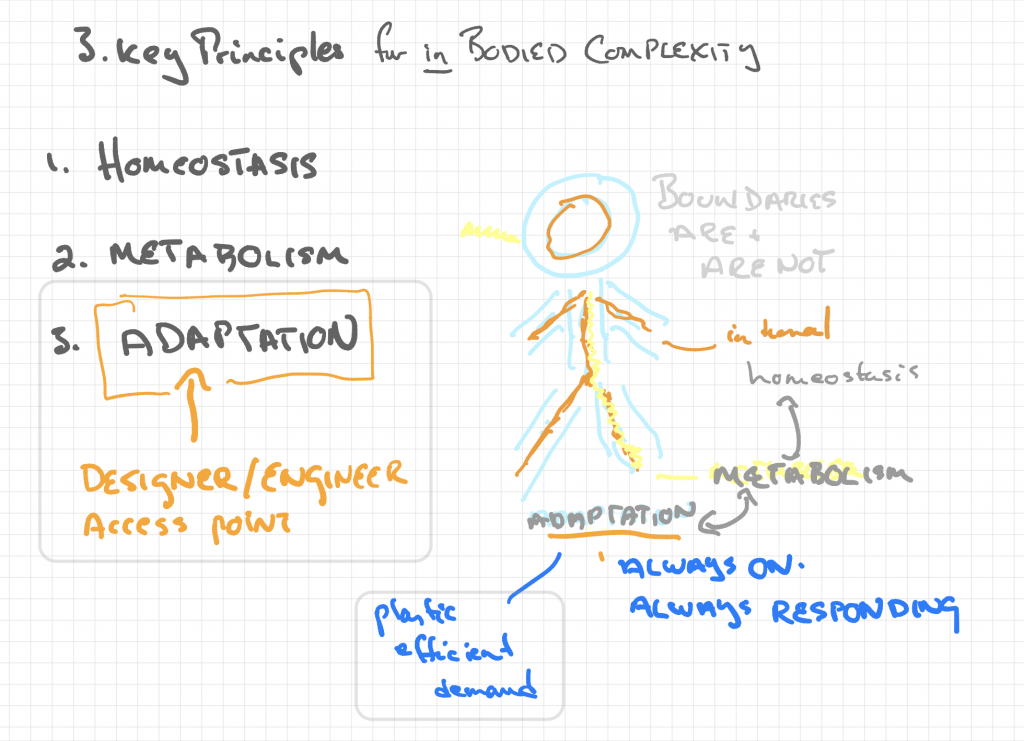
The human body is the SITE OF ADAPTATION – (looking at it from the in-side to out-side, and vice-versa) is composed of networks of systems constantly interacting as part of constant, active, adapting to context. Where adaptation is a (necessary) response to flows moving outside, around, and within us, whether the flows are biological, social, computational, environmental , encompassing context we are in.
We’ll also talk about the fundamental access points inbodied interaction designers (or anyone really has to connect – non-invasively – with us as embodied, physical beings.
these are the Inbodied FIVE of Move Engage Eat Cogitate Sleep, and the Circumbodied FOUR: Gravity Air Microbiome Light
Part II – Tuning, Continua, Discomfort – m.c. schraefel and Mike Jones

Following from Josh’s introduction, m.c. and Mike will explore some of the features of the draft Inbodied Interaction Design Framework to create Inbodied Interaction aligned designs: TUNING (overview here), and embracing DISCOMFORT as a necessary design material to support TUNING for adaptation in context, and continua as helping frame a design space for II design choices.
This Seminar will help Prepare The Way towards the follow up from this seminary in early 2022 – the Design Framework Barn Storming towards the CHI Workshop Design Framework Focus (see NEXT STEPS, below (scroll down).
Seminar 2 – Guillaume Chevance; Olga Perski – A Methodology of Tuning
TUNING – PAR1 ONE – Towards Tuning Design: Time Series and Complexity
Collecting data with digital health technologies (e.g., smartphones) is transforming the way we approach behavior changes, from static conceptualizations to more adaptive, “continuous tuning” ones. In this talk, which is link and precede the one by Olga Perski, we will discuss concepts of high-resolution data collection, idiographic analyses, time series analyses and complex systems theory useful to the process of tuning.”
TUNING – Part 2: Using N-of-1 Designs and Micro-Randomised Trials to Facilitate the Move From Static to Adaptive and Continuous Tuning Interventions
Following on from Guillaume Chevance’s seminar – introducing notions of high-resolution data, time series analysis and complexity science – this seminar will focus on the need for adaptive and continuous tuning interventions. The amounting evidence that health behaviours are complex suggests that adaptive and continuous tuning interventions are important for better supporting health and wellbeing over time and across different contexts, similar to what a clinician or health coach would do in their practice. This talk will highlight how N-of-1 designs and Micro-Randomised Trials (i.e., experimental designs in which individuals are randomised 100s of times to different intervention options across varying contexts) can help facilitate the move to such dynamically tailored interventions.”
SESSION ONE: Guillaume Chevance, Nov 23 Tues 5pm UK; 9AM Los Angeles
SESSION TWO: Olga Perski, Nov 25 Thurs 9am Madrid; 5pm Tokyo, 7pm Melbourne

Olga Perski 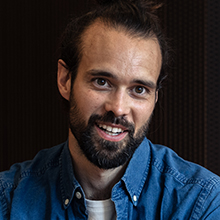
Guillaume Chevance
Bios: Olga is a Senior Research Fellow in the UCL Tobacco and Alcohol Research Group. She is an interdisciplinary researcher working at the intersection of behavioural science, public health, and technology. She is an advocate of open digital health, and her work is focused on the development, evaluation, and scaling of interventions for smoking cessation and alcohol reduction delivered via apps, chatbots, and virtual reality. More info: www.olgaperski.com
Bio: Guillaume is assistant research professor and head of the eHealth team at the Barcelona Institute for Global Health (ISGlobal). He is a multi-disciplinary researcher with interests in digital health methods and complex systems theory applied to behavioral medicine and climate change topics. Profile: https://www.isglobal.org/en/our-team/-/profiles/2620; Publications: https://guillaumechevance.com/publications/; active here @GuillChevance Key Paper: https://academic.oup.com/tbm/article/11/2/676/5838784
And for Prep: Chevance, G, Baretta, D, Heino, MTJ, Perski, O, Olthof, M, Klasnja, P, Hekler, EB, & Godino, J. (2021). Characterizing and predicting person-specific, day-to-day, fluctuations in walking behavior. PLOS ONE, https://doi.org/10.31236/osf.io/bzj6s.
Seminar 3 – Ryan Andrews in5:EAT – The Food CH CH Chain
in5 EAT – FROM WHERE?– from food supply to the local dirt -interaction design and social health and justice – food – what’s available, how it’s sustainable, what we demand vs what we need – it all affects who we are – and how we think about designing for health – it’s so not about calories
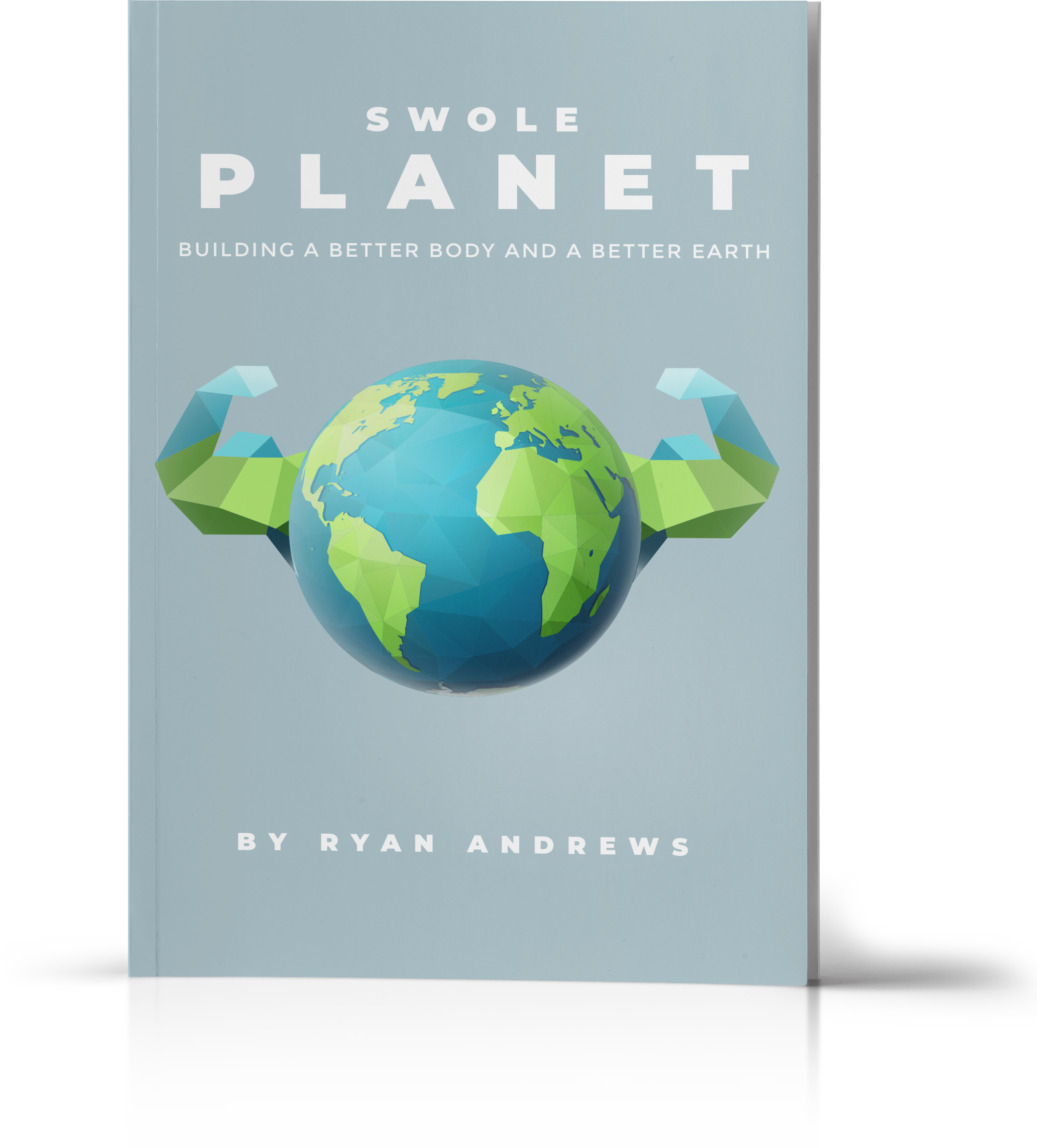
To quote Ryan
The food system is built upon stolen land and wages. If African Americans had been paid $20 per week for labor on farms, they would have over six trillion dollars right now. … It’s clear that the food system is contributing to widespread suffering. But I believe it’s possible to create a more equitable, sustainable, healthful, and humane food system, and I want to help build it.
Join us with Ryan Andrews, author of Swole Planet
SESSION ONE: Dec 1 Tuesday, 11am Boston, USA; 4pm London
Title: Food System Problems: Learning the Food Chain from Field to Fork
ABOUT: “Food is the single strongest lever to optimize human health and environmental sustainability on Earth.” -EAT Lancet Commission Summary Report, 2019. What we eat (or don’t eat) is the leading cause of death and disability, globally. Human rights and animal welfare issues persist in food supply chains. And the food system is a driver of the current ecological crisis. This presentation will cover the various ways in which the food system is contributing to widespread suffering and inequality.
SESSION TWO: Dec 3 Thursday, 6pm Boston USA. 10am Melbourne
Title: Food System Solutions: Taking Action
ABOUT “Farmers grow what governments incentivize and what consumers demand.” -Ajay Vir Jakhar
The food system cannot change unless eaters change, and this change needs to be shaped by clear evidence-informed guidelines. This presentation will offer five action steps that you can incorporate immediately/locally to create a more equitable, sustainable, healthful, and humane food system.

About Ryan
Ryan D. Andrews (http://ryandandrews.com) completed his education and training at the University of Northern Colorado, Kent State University, Johns Hopkins Medicine, and Columbia University. He currently writes and speaks about health and sustainability, teaches at Purchase College, is an expert reviewer for Insider, and is an adviser with Precision Nutrition. His latest book is Swole Planet: Building a Better Body and a Better Earth. You might have seen him in Time, Parade, Muscle & Fitness, Men’s Health, Men’s Journal, Rodale Organic Life, Greatist, Buzzfeed, Furthermore from Equinox, Alan Aragon’s Research Review, ABC News, or Good Housekeeping. Ryan has over 1000 hours experience volunteering on farms and with non-profit food recovery organizations. And he has taught over 300 hours of trauma-informed yoga at Silver Hill Hospital.
Seminar 4 – Dana Lewis – DIY the inbodied
Inbodied CONTINUA: insourcing to outsourcing; raw to cyborg- what happens when people build improvements onto existing medical devices?
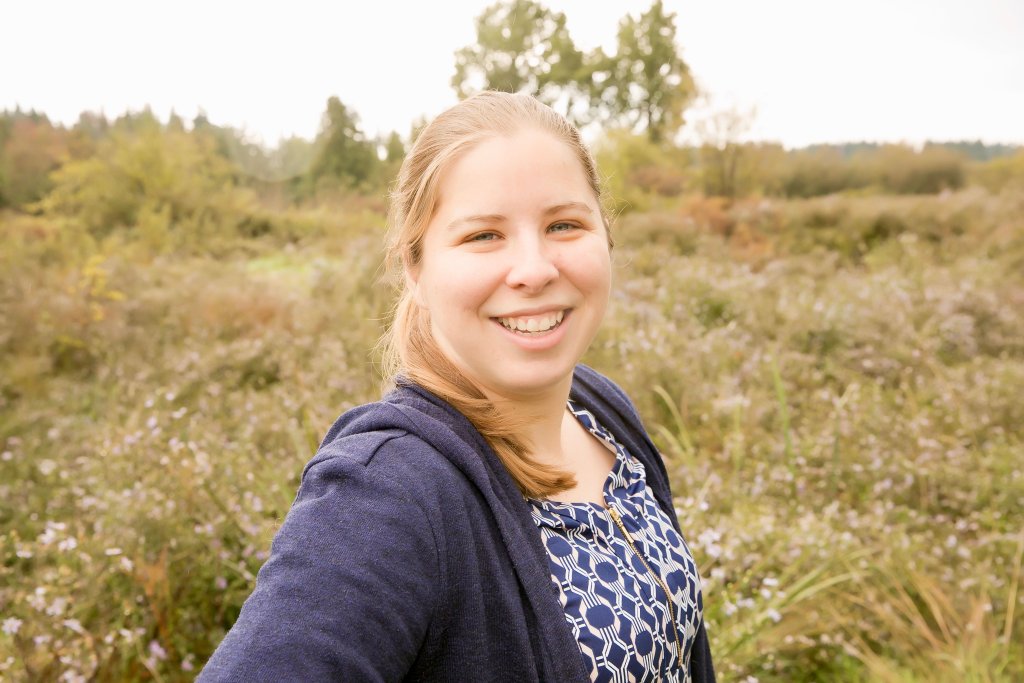
Featuring Dana Lewis of the DIY Pancreas Project where the moto is “#WeAreNotWaiting to make the world a better place” – we relate as we seek to help “#makeNormalBetter for all @scale”
SESSION ONE: Dec 6 Monday, 9am LA Time. How it’s possible to design add-on components to medical devices”
SESSION TWO: Dec 8 Wednesday, 4pm San Diego Time. Bottom-Up Rather Than Top Down – Recognizing and Improving Knowledge Generation Outside The System”
Dana’s Bio: After building her own DIY “artificial pancreas,” Dana Lewis helped found the open source artificial pancreas movement (known as “OpenAPS”), making safe and effective artificial pancreas technology available (sooner) for people with diabetes around the world. She authored the book, “Automated Insulin Delivery: How artificial pancreas “closed loop” systems can aid you in living with diabetes“, to help more people understand automated insulin delivery systems, in addition to a series of children’s books such as “Understanding Automated Insulin Delivery: A basic book for kids, family, and friends of people living with diabetes“. She is currently researching numerous diabetes-related data science and open source artificial pancreas system projects.
Seminar 5 – Brad Warner – Boring is Good for Your Inbodied You – and new for Design
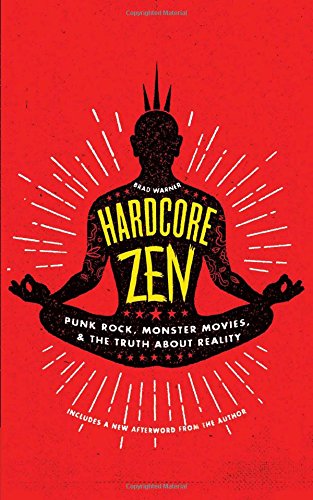
DISCOMFORT DESIGN and in5 Cogitate – when is something good for nothing worth the effort -decades of effort.
In a world where “mindfulness” is the new black, and exploration of psychedelic drugs is proposed as a shortcut to higher states of consciousness, – where HCI seeks to craft designs to make meditation easier and more accessible – why would one “just sit” – for years – with no guarantee of “enlightenment” but might become kinder, gentler and maintain perspective? We explore un-mindfulness and un-meditation while getting physical and very very real.
How design for THAT?

Join us with Zen master, author and Zero Defex Hardcore Punk Bassist Brad Warner (wikipedia) of HardcoreZen author of the books Hardcore Zen, Sit Down and Shut up, Don’t be a Jerk, and many more – including Letters to a Dead Friend About Zen.
SESSION ONE: Dec 14 TUES, 9am Los Angeles; 5pm London
SESSION TWO: DEC 16, Thursday, 4pm Los Angeles; 10am Melbourne.
PS – Brad would like YOUR QUESTIONS on zen, discomfort and meditation – you’ll see this invite in the signup page.
Come be Inspired! in your own time zone. All sessions will be recorded and available for 48 hours after the LIVE session ends.
We ask that all attendants commit to coming to at least one LIVE session by any presenter.
Also, to make sure you can ask questions, no matter which session you can attend, school participants will be invited to the school Slack channel. Our presenters have all agreed to come to the Slack channel to hang out with us and participate in the post-presentation discussions.
You can check times and time zone alignment at world time buddy
Accessibility Support
We will be using Teams; automatic captions and transcriptions will be available.
Asynchronous Support
Participants will be invited to join our inclusive, supportive, and global slack community, where we will share the recording, engage live with the speakers and continue future collaborations.
Sign Up –
ATTENDANCE IS VIRTUAL and FREE – thanks to support from the ACM SIGCHI Development Fund – you only need to sign up here with your ACM member number or with your university email address. IF YOUR ARE ALSO A STUDENT ACM MEMBER – please do add your ACM number – The first 30 ACM student members to sign up and attend the full series will receive a Seminary Library from our speaker’s books.
TO BE eligible for the books, students need to attend at least one of each seminar live.
SO Sign up here – so we can send you the video links before the talks.
Next Steps: post seminary? YES looking to 2022 with YOU.
This seminar series (seminary) is the foundation/provocations for what will be our First Quarter of 2022 International Inbodied Interaction Design Barn Storming Quest to practice together how we might collaborate and build new types of designs and practices, testing the Inbodied Interaction Design Framework – help design and refine the future of Inbodied Interaction Design Usability
(if our CHI 2022 virtual workshop proposal is accepted, we’ll be bringing these exploratory strands together there – big working Party Workshop and if not we’ll still have a workers party – more on 2022 in early 2022. For now!! the Seminary).
History and Related Info
The First Inbodied Interaction Design (Summer) School was a physical event in 2019 that took place in Southampton, UK at the University of Southampton. More info here
You can find out more about Inbodied Interaction here on the Wellthlab site. Have a start with the Inbodied Interaction Primer and where we’re going: to refine the Inbodied Interaction Design Framework
SO Sign up here – so we can send you the video links before the talks.
Our Sponsors
Thank you the ACM SigCHI Development Fund Committee, 2020, (and 2021) who supported our application for a follow up to our first School in 2019. With COVID in 2020 what we’d planned as an in person school meant a rethink – and now this Seminar-y, 2021 – this first part of the 2nd school. The funding has enabled us to support our speakers, free registration for our global participants. We hope that by having our series in multiple time zones we can help connect with folks across the globe again.
Your hosts, for these sessions:
m.c. schraefel in the EU times, Josh Andres in the Oz times.
Look forward to seeing you!
